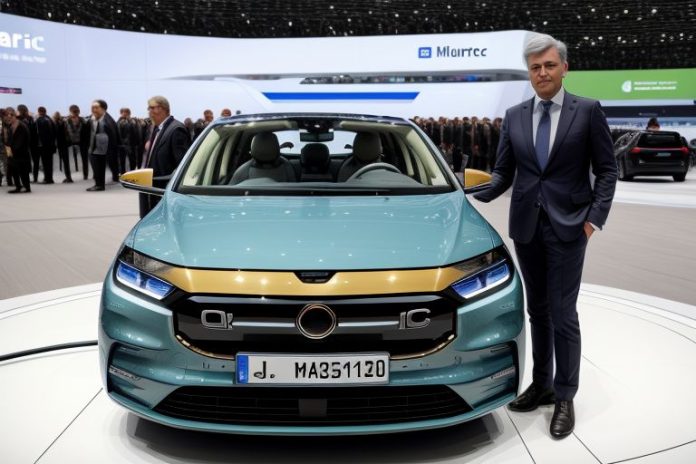For decades, Germany reputed for advanced combustion engine production has unveiled a new vision for place branding in Electric Vehicle (EV) manufacturing. The initiative is a nationwide master plan for electric mobility that was presented at a press conference in Stuttgart together with top executives of traditional automobile producers and key automotive associations The presented plan contains clear and unambiguous strategies marking further directions for the development of electric mobility in Germany to sustain the country’s competitive advantage in automotive industry.
The plan, known as “Elektromobilität Deutschland 2030,” is the first time that competition-loving manufacturers, suppliers, and governmental organizations have joined forces. The strategy enshrines rather challenging goals for electrics vehicle production, charging stations deployment and advancing technology for the next ten years.
According to the consortium’s representative, Volkswagen CEO Oliver Blume, the shift must happen urgently because, as he put it, “The future of mobility is electric, and Germany must lead this revolution or risk being left behind.” This initiative would help assure not only that we asTapTech continue to match our counterparts around the globe but also exceed them and solidify ourselves as the model for the entire industry globally.
Areas of the plan intending to unleash action include a pledge to spend over €100 billion on researching and developing EVs, the installation of high-speed charging stations across the country, setting up of new battery manufacturing plants across the nation, and many more. Needless to say, the initiative also includes plans for retraining workers as well as repurposing current manufacturing plants to accommodate EV production.
The German government has endorsed the initiative saying a lotLEGROV will go far and more because the industry has been very proactive Schultz the chancellor said. Scholz said This plan is fully in line with our national climate targets and our economic course. It illustrates Germany’s ability to try for creativity and ecological responsibility while preserving employees’ and economic growth.’
Environmental organizations have reacted positively to the announcement but some of them have asked for still higher targets to be set. Markus Weber from Greenpeace Germany said, This is a positive welcome nonetheless, and the industry should step up their plans and timelines and aim to eliminate the use of combustion engine vehicles by 2035 at the latest.
This has raised questions on what the larger implication of the initiative is to the German economy and workforce. Employers’ organizations have shown likewise Approval of the Directive and concerns about its provisions, particularly regarding workers’ rights and social protection in a context of transition towards sustainable energy sources.
Early in the year, IG Metall, the largest industrial union in Germany, issued a press release that urged managers and workers to continue discussing how the transition to EV manufacturing can be done without eliminating jobs or undermining workers’ rights.
There has been divergent reactions from the global community in response to the announcement. Whereas, there are some countries that still consider it a threat to their domestic auto industries, there are also some countries that they are willing to learn and share knowledge with. According to the European Commission the German concept could setup the framework for a comprehensive EU approach of electric mobility.
It has raised concerns specifically on energy policy and grid once again or even more with the new paradigm laid down in the plan. They stated that increase in production and use of EVs is expected to pose a big challenge to the German power network especially due to the high current and future electricity demand that is expected to be posed by increased EV use.
As this automotive industry sets out on this daunting task, the impacts are likely to spread over other sectors in the German economy. Automotive suppliers, technology firms, and new entrants are all getting ready for this change to electric mobility.
The achievement of the “Elektromobilität Deutschland 2030” will significantly determine the future of the German automotive industry and the general economic and ecological initiatives in Germany. As the world watches, German car makers are pinning their stars on electrification with the aim of writing the next chapter in car making in the country that has been known for such for over a century.

